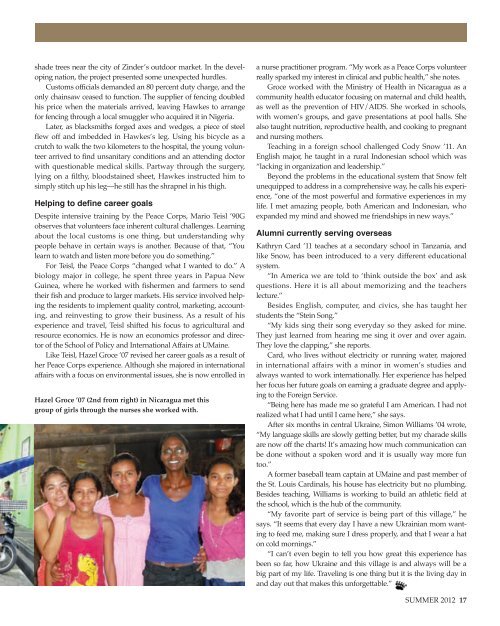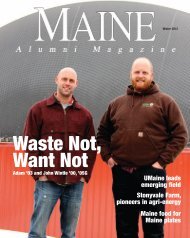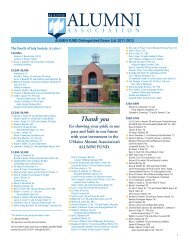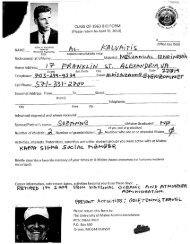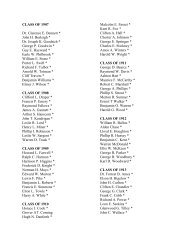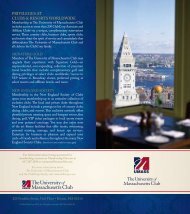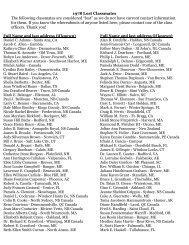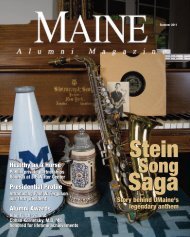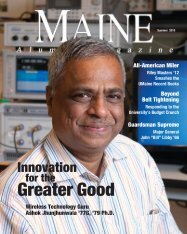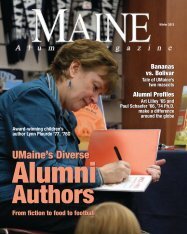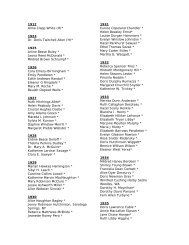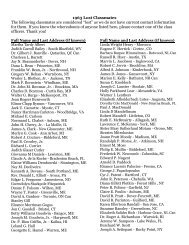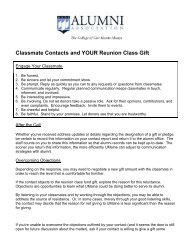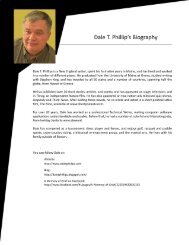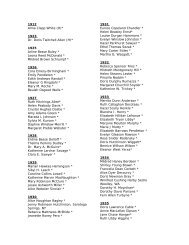Read the Summer 2012 issue - the University of Maine Alumni ...
Read the Summer 2012 issue - the University of Maine Alumni ...
Read the Summer 2012 issue - the University of Maine Alumni ...
Create successful ePaper yourself
Turn your PDF publications into a flip-book with our unique Google optimized e-Paper software.
shade trees near <strong>the</strong> city <strong>of</strong> Zinder’s outdoor market. In <strong>the</strong> developing<br />
nation, <strong>the</strong> project presented some unexpected hurdles.<br />
Customs <strong>of</strong>ficials demanded an 80 percent duty charge, and <strong>the</strong><br />
only chainsaw ceased to function. The supplier <strong>of</strong> fencing doubled<br />
his price when <strong>the</strong> materials arrived, leaving Hawkes to arrange<br />
for fencing through a local smuggler who acquired it in nigeria.<br />
Later, as blacksmiths forged axes and wedges, a piece <strong>of</strong> steel<br />
flew <strong>of</strong>f and imbedded in Hawkes’s leg. Using his bicycle as a<br />
crutch to walk <strong>the</strong> two kilometers to <strong>the</strong> hospital, <strong>the</strong> young volunteer<br />
arrived to find unsanitary conditions and an attending doctor<br />
with questionable medical skills. Partway through <strong>the</strong> surgery,<br />
lying on a filthy, bloodstained sheet, Hawkes instructed him to<br />
simply stitch up his leg—he still has <strong>the</strong> shrapnel in his thigh.<br />
Helping to define career goals<br />
Despite intensive training by <strong>the</strong> Peace Corps, Mario Teisl ’90G<br />
observes that volunteers face inherent cultural challenges. Learning<br />
about <strong>the</strong> local customs is one thing, but understanding why<br />
people behave in certain ways is ano<strong>the</strong>r. Because <strong>of</strong> that, “You<br />
learn to watch and listen more before you do something.”<br />
For Teisl, <strong>the</strong> Peace Corps “changed what I wanted to do.” A<br />
biology major in college, he spent three years in Papua new<br />
Guinea, where he worked with fishermen and farmers to send<br />
<strong>the</strong>ir fish and produce to larger markets. His service involved helping<br />
<strong>the</strong> residents to implement quality control, marketing, accounting,<br />
and reinvesting to grow <strong>the</strong>ir business. As a result <strong>of</strong> his<br />
experience and travel, Teisl shifted his focus to agricultural and<br />
resource economics. He is now an economics pr<strong>of</strong>essor and director<br />
<strong>of</strong> <strong>the</strong> School <strong>of</strong> Policy and International Affairs at U<strong>Maine</strong>.<br />
Like Teisl, Hazel Groce ’07 revised her career goals as a result <strong>of</strong><br />
her Peace Corps experience. Although she majored in international<br />
affairs with a focus on environmental <strong>issue</strong>s, she is now enrolled in<br />
Hazel Groce ’07 (2nd from right) in Nicaragua met this<br />
group <strong>of</strong> girls through <strong>the</strong> nurses she worked with.<br />
a nurse practitioner program. “My work as a Peace Corps volunteer<br />
really sparked my interest in clinical and public health,” she notes.<br />
Groce worked with <strong>the</strong> Ministry <strong>of</strong> Health in nicaragua as a<br />
community health educator focusing on maternal and child health,<br />
as well as <strong>the</strong> prevention <strong>of</strong> HIV/AIDS. She worked in schools,<br />
with women’s groups, and gave presentations at pool halls. She<br />
also taught nutrition, reproductive health, and cooking to pregnant<br />
and nursing mo<strong>the</strong>rs.<br />
Teaching in a foreign school challenged Cody Snow ’11. An<br />
English major, he taught in a rural Indonesian school which was<br />
“lacking in organization and leadership.”<br />
Beyond <strong>the</strong> problems in <strong>the</strong> educational system that Snow felt<br />
unequipped to address in a comprehensive way, he calls his experience,<br />
“one <strong>of</strong> <strong>the</strong> most powerful and formative experiences in my<br />
life. I met amazing people, both American and Indonesian, who<br />
expanded my mind and showed me friendships in new ways.”<br />
<strong>Alumni</strong> currently serving overseas<br />
Kathryn Card ’11 teaches at a secondary school in Tanzania, and<br />
like Snow, has been introduced to a very different educational<br />
system.<br />
“In America we are told to ‘think outside <strong>the</strong> box’ and ask<br />
questions. Here it is all about memorizing and <strong>the</strong> teachers<br />
lecture.”<br />
Besides English, computer, and civics, she has taught her<br />
students <strong>the</strong> “Stein Song.”<br />
“My kids sing <strong>the</strong>ir song everyday so <strong>the</strong>y asked for mine.<br />
They just learned from hearing me sing it over and over again.<br />
They love <strong>the</strong> clapping,” she reports.<br />
Card, who lives without electricity or running water, majored<br />
in international affairs with a minor in women’s studies and<br />
always wanted to work internationally. Her experience has helped<br />
her focus her future goals on earning a graduate degree and applying<br />
to <strong>the</strong> Foreign Service.<br />
“Being here has made me so grateful I am American. I had not<br />
realized what I had until I came here,” she says.<br />
After six months in central Ukraine, Simon Williams ’04 wrote,<br />
“My language skills are slowly getting better, but my charade skills<br />
are now <strong>of</strong>f <strong>the</strong> charts! It’s amazing how much communication can<br />
be done without a spoken word and it is usually way more fun<br />
too.”<br />
A former baseball team captain at U<strong>Maine</strong> and past member <strong>of</strong><br />
<strong>the</strong> St. Louis Cardinals, his house has electricity but no plumbing.<br />
Besides teaching, Williams is working to build an athletic field at<br />
<strong>the</strong> school, which is <strong>the</strong> hub <strong>of</strong> <strong>the</strong> community.<br />
“My favorite part <strong>of</strong> service is being part <strong>of</strong> this village,” he<br />
says. “It seems that every day I have a new Ukrainian mom wanting<br />
to feed me, making sure I dress properly, and that I wear a hat<br />
on cold mornings.”<br />
“I can’t even begin to tell you how great this experience has<br />
been so far, how Ukraine and this village is and always will be a<br />
big part <strong>of</strong> my life. Traveling is one thing but it is <strong>the</strong> living day in<br />
and day out that makes this unforgettable.”<br />
SUMMER <strong>2012</strong> 17


